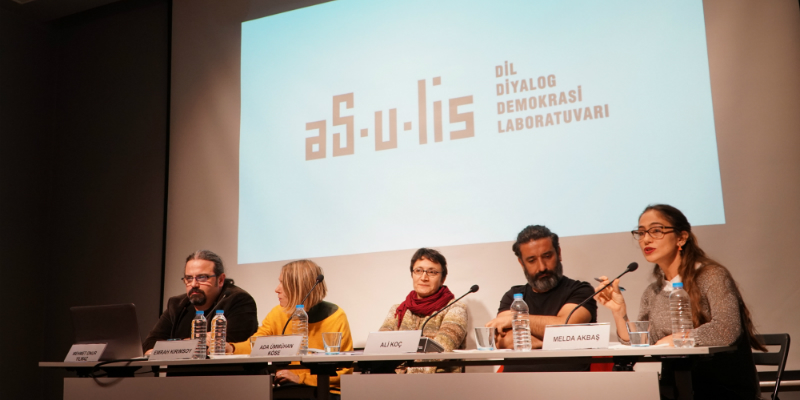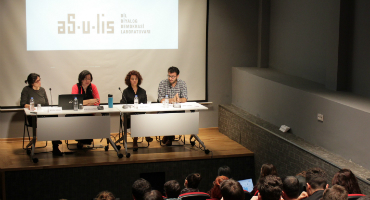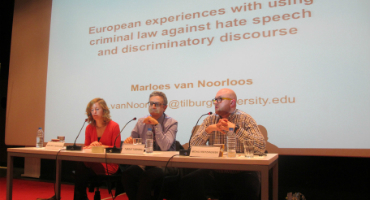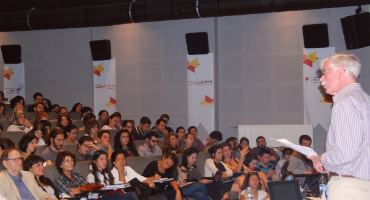Organized by Asulis Discourse, Dialog and Democracy Laboratory under the auspices of Hrant Dink Foundation, “Alternative Methods in Combating Discrimination in Education” panel discussion was held in Havak Hall of Anarad Hığutyun Building on January 4, 2017. Moderated by Melda Akbaş, who works at Ashoka Turkey and focuses on child participation, refugee children's access to education and the media of children, the panel discussion was held with the participation of Gündem Çocuk Association activists Emrah Kırımsoy and Mehmet Onur Yılmaz, founder of Eğitimpedia and Fide Schools Ali Koç and school counselor Ada Ümmühan Köse, who carries out works on education in Kaos GL and Eğitim-Sen.
Emrah Kırımsoy and Mehmet Onur Yılmaz were first ones to speak and they made a presentation on human rights of children, the way the children are perceived and also the common beliefs in the world designed by adults. Stating that shaping children is not a power that adults should enjoy, Kırımsoy and Yılmaz noted that it is impossible to form an equal relationship with children without eliminating the mechanism of domination that adults exercise on children. They stated that children and adults are subjected to similar types of discrimination, but there are also other types of discrimination that children are subjected to just because they are children. Lastly, they mentioned the importance of advocacy of child's rights, the obstacles to it and the problems caused by an educational system focused on measuring the level of success of the students.
Speaking after Kırımsoy and Yılmaz, Ali Koç emphasized the importance of the knowledge obtained by living and experiencing and talked about their experiences about the alternative education model that they have realized in Fide Schools. Stating that Fide Schools adopted the principle of embracing all colors of life, Koç said that children can be adapted to differences more easily compared to adults and that is why the experiences gained in school years are very significant. He said that architects would not be aware of the fact that a building has to have a disabled access ramp, if they didn't have a classmate in wheelchair, and pointed out that encounter and contact is very important in combating discriminatory practices.
Ada Ümmühan Köse was the last speaker and she talked about the discriminatory practices in schools and the ways teachers and counseling services in schools can contribute to develop alternative methods. Stating that any violation of right is a field of study and there should not be a hierarchy among violations, Köse noted that it is almost impossible to change the curriculum that was designed with a non-pluralistic understanding. On the other hand, she said that there is no need to be pessimistic and teachers can create new grounds and give hope with minor struggles, once they stop resisting the developments. Lastly, Köse criticized an understanding of education focused on product and success and pointed out that children's opinions and the process they experienced should be regarded.





